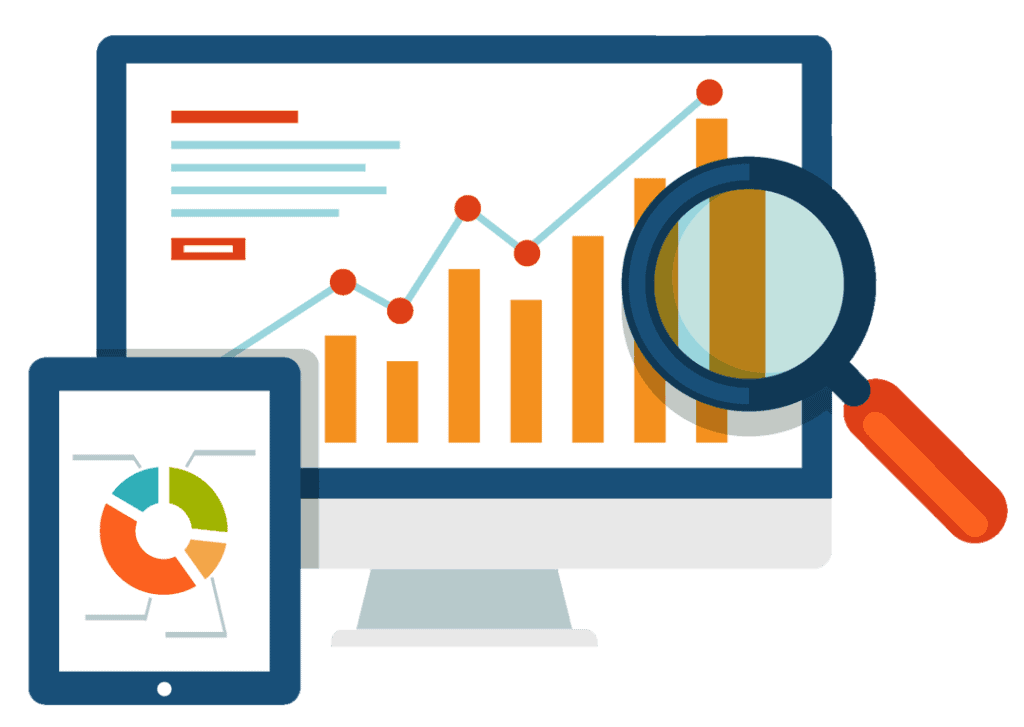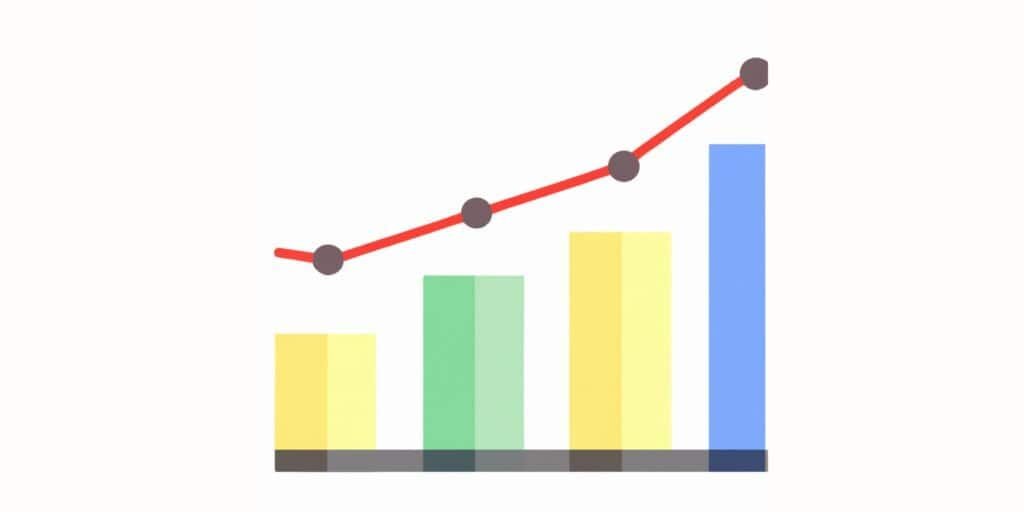Howdy! Let’s be honest, SEO can feel like a mystical puzzle sometimes. You pour hours into tweaking your website, crafting content, and praying to the Google gods for a little visibility. But what if you could ditch the guesswork and unlock a data-driven strategy that actually delivers results? Buckle up, because this is your all-access pass to SEO enlightenment, packed with actionable insights to transform your website into an organic traffic magnet.
The SEO Game Changer: Why Analytics Are Your Secret Weapon
Hold on tight, because we’re about to drop a truth bomb: analytics and data are the backbone of successful SEO. Forget about relying on gut feelings or outdated tactics – it’s time to embrace the power of cold, hard data. Here’s why:
- Performance Measurement: Analytics reveal the true story of your SEO performance, unveiling the strengths and weaknesses of your strategy. It’s like having a personal SEO coach whispering secrets in your ear.
- Unlocking User Behavior: Ever wondered what makes visitors tick? Analytics provide a window into user behavior, revealing the pages they love, the keywords they use, and the actions they take. Armed with this knowledge, you can optimize your website for maximum engagement.
- Crushing the Competition: Want to leave your competitors in the dust? Analytics allow you to peek into their playbook, uncovering their keyword strategies and backlink profiles. Knowledge is power, my friend.
- Data-Driven Decisions: Say goodbye to SEO roulette! Analytics empower you to make informed decisions based on concrete evidence, ensuring every move you make is strategic and effective.
Choosing the Right Tools: Your SEO Arsenal
Before we dive into the nitty-gritty of analytics, you need the right tools for the job. It’s like building a house – you wouldn’t start without a hammer and nails, right? Here’s your guide to assembling your SEO toolkit:
- Define Your Needs: What do you want to achieve with SEO? Increased traffic? More conversions? Understanding your goals will guide you towards the right tools.
- Explore the Options: From industry giants like Google Analytics to specialized SEO software, the options are endless. Research different tools, compare features, and consider your budget.
- Integration is Key: Seamless integration with your website and existing systems is crucial for streamlined data collection and analysis.
- User-Friendliness Matters: Don’t get bogged down by complex interfaces. Choose tools that are intuitive and easy to navigate, even for analytics newbies.
- Scalability and Flexibility: As your website grows, your analytics tools need to keep pace. Opt for tools that can handle increasing data volumes and evolving SEO strategies.
- Accuracy and Reliability: Data integrity is paramount. Choose tools with a proven track record of delivering accurate and reliable insights.

Installing and Configuring Analytics: Laying the Foundation
Once you’ve selected your weapons of choice, it’s time to install and configure them properly. Think of it as setting up your SEO command center – every detail matters.
- Installation: Most analytics tools involve adding a snippet of tracking code to your website. Don’t worry, it’s usually a simple copy-and-paste job.
- Configuration: Now it’s time to customize your analytics setup to align with your specific goals. Define goals, track events, filter out irrelevant traffic – the possibilities are endless.
The SEO Metrics That Matter: Your Path to Enlightenment
With your analytics tools in place, you’re ready to unlock a treasure trove of data. But with so much information at your fingertips, where do you even begin? Fear not, intrepid SEO explorer, for here are the key metrics that will illuminate your path:
- Organic Search Traffic: The lifeblood of SEO, this metric reveals how many visitors are finding your website through organic search results. A steady increase is a sign that your SEO efforts are paying off.
- Keyword Rankings: Where does your website stand in the search engine hierarchy? Tracking keyword rankings reveals your position for specific keywords, highlighting areas for improvement.
- Conversion Rate: This metric measures the percentage of visitors who take a desired action, such as making a purchase or signing up for a newsletter. A high conversion rate means your SEO efforts are not only driving traffic but also generating valuable leads.
- Bounce Rate: A high bounce rate (visitors leaving after viewing only one page) is a red flag. It signals that something isn’t resonating with your audience – perhaps your content isn’t relevant, your website is slow, or your design is off-putting.
- Click-Through Rate (CTR): This metric reveals how often people click on your website’s link in search results. A high CTR suggests that your title tags and meta descriptions are compelling and relevant to search queries.
Advanced Analytics Techniques: Unleashing the Powerhouse
Ready to take your SEO analysis to the next level? These advanced techniques will give you a competitive edge:
- Goal Tracking: Define specific objectives for your website, such as increasing conversions or boosting user engagement, and track your progress towards achieving them.
- Event Tracking: Dive deeper into user behavior by tracking specific actions on your website, such as button clicks, video plays, or form submissions. This granular data reveals valuable insights into user preferences and engagement patterns.
- User Behavior Analysis: Go beyond basic metrics and uncover the psychology behind user actions. Analyze conversion funnels, study heatmaps, and replay user sessions to understand how visitors interact with your website and identify areas for improvement.
- Segmentation and Filtering Data: Don’t settle for a one-size-fits-all approach. Segment your data into meaningful groups (e.g., by demographics, traffic source, or device) to uncover hidden insights and tailor your SEO strategies to specific audience segments.
Keeping Tabs on the Competition: The Art of SEO Warfare
Remember those competitors we talked about leaving in the dust? Here’s how to gain a tactical advantage:
- Competitor Keyword Analysis: Uncover the keywords your competitors are ranking for and identify potential gaps in your own strategy.
- Backlink Analysis: Backlinks are like votes of confidence from other websites, boosting your credibility in the eyes of search engines. Analyze your competitors’ backlink profiles to discover high-quality linking opportunities.
- Social Media Analysis: Social media plays a significant role in SEO. Track your competitors’ social media activity, analyze their content strategies, and identify opportunities to boost your own social media presence.

Putting Data Insights into Action: Transforming Your SEO
Now that you’re swimming in data, it’s time to turn those insights into concrete actions. Here’s your roadmap to SEO success:
- Identify High-Performing Keywords: Focus your efforts on the keywords that are already driving traffic and conversions. Analyze search queries, track keyword rankings, and assess competitiveness to identify the most valuable targets.
- Optimize Content Based on Analytics: Data can reveal which content is resonating with your audience and which pieces need improvement. Use insights to refine your content strategy, target relevant keywords, and enhance user experience.
- Identify and Fix Technical SEO Issues: Technical glitches can sabotage your SEO efforts. Use analytics to identify crawl errors, slow loading times, mobile-friendliness issues, and other technical factors that might be hindering your website’s performance.
- Improve User Experience and Engagement: Remember, search engines prioritize websites that offer a positive user experience. Analyze user behavior data to identify areas for improvement, such as optimizing page load speed, simplifying navigation, and creating compelling content.
The Multi-Source Data Advantage: Expanding Your Horizons
Don’t limit yourself to a single data source. Embrace a multi-faceted approach to gain a comprehensive understanding of your SEO performance:
- Google Analytics: Your go-to source for website traffic analysis, user behavior insights, and conversion tracking.
- Google Search Console: Uncover how Google sees your website, identify technical issues, and analyze search queries that lead to your site.
- Social Media Platforms: Analyze engagement metrics, track brand mentions, and identify popular content trends to refine your social media strategy and boost your SEO efforts.
- SEO Tools and Software: Leverage specialized SEO tools to streamline your workflow, automate tasks, and gain deeper insights into keyword research, competitor analysis, backlink tracking, and more.
Predictive Analytics: Gazing into the SEO Crystal Ball
Ready to unlock the future of your SEO? Predictive analytics empowers you to anticipate trends and forecast performance:
- Forecasting SEO Performance: Use historical data and trend analysis to predict the future trajectory of your SEO efforts, enabling you to set realistic goals and adjust your strategies accordingly.
- Identifying Trends and Patterns: Uncover recurring patterns in your SEO data, such as seasonal trends or spikes in traffic, to anticipate future fluctuations and optimize your website accordingly.
- Predicting Keyword Performance: Forecast the potential success of specific keywords based on search volume, competition, and historical data. This foresight empowers you to prioritize high-performing keywords and optimize your content for maximum impact.

Conclusion
Congratulations, you’ve reached the end of your SEO enlightenment journey! You’re now armed with the knowledge and tools to transform your website into an organic traffic powerhouse. Remember, SEO is a continuous process of analysis, optimization, and refinement. By embracing a data-driven approach, you can stay ahead of the curve, adapt to changing search engine algorithms, and achieve lasting SEO success.
FAQs
What’s the most important SEO metric? While all SEO metrics are important, organic search traffic is arguably the most crucial. It reflects the effectiveness of your overall SEO efforts and indicates how well your website is attracting visitors from search engines.
How often should I analyze my SEO data? Regular monitoring is key. Aim to analyze your data at least monthly to identify trends, track progress, and spot any emerging issues. For more granular insights, you can delve into weekly or even daily data analysis.
What are the best SEO tools for beginners? For those starting out, Google Analytics and Google Search Console are excellent free tools that provide a wealth of information. As you gain experience, you can explore more advanced SEO software to streamline your workflow and unlock deeper insights.
Similar Content

